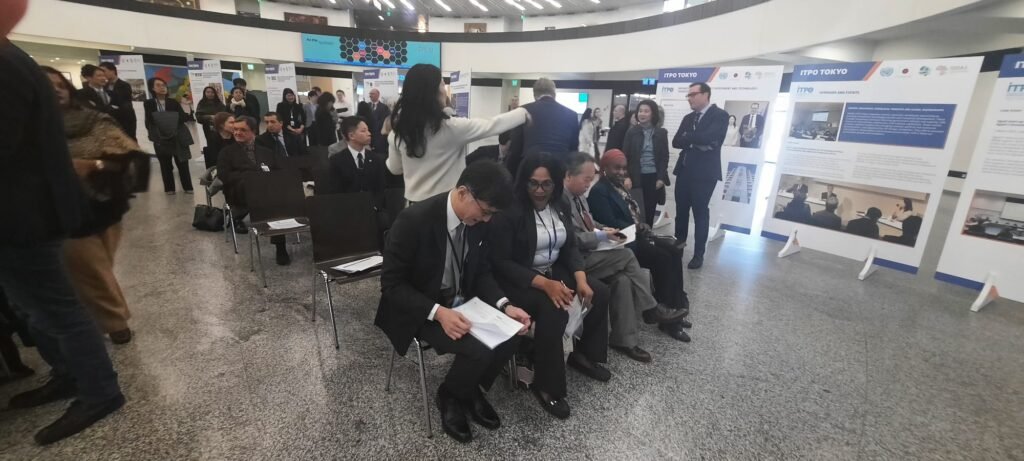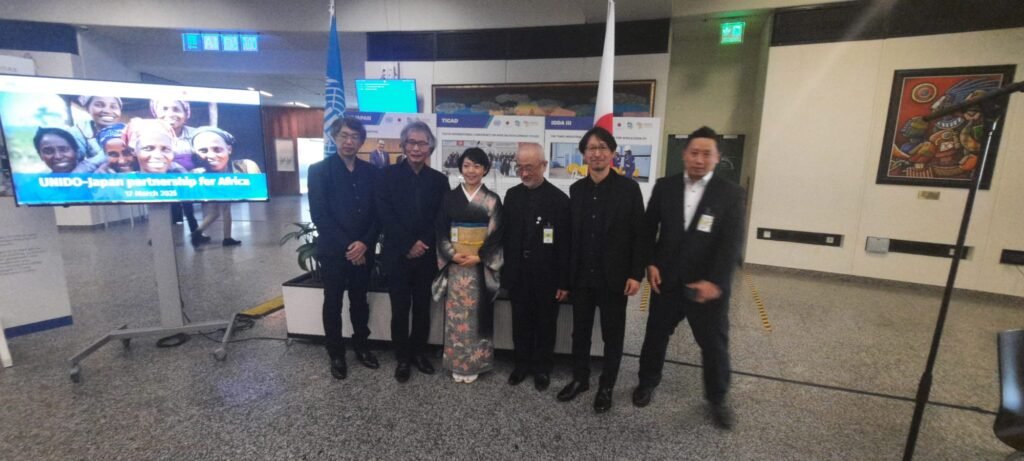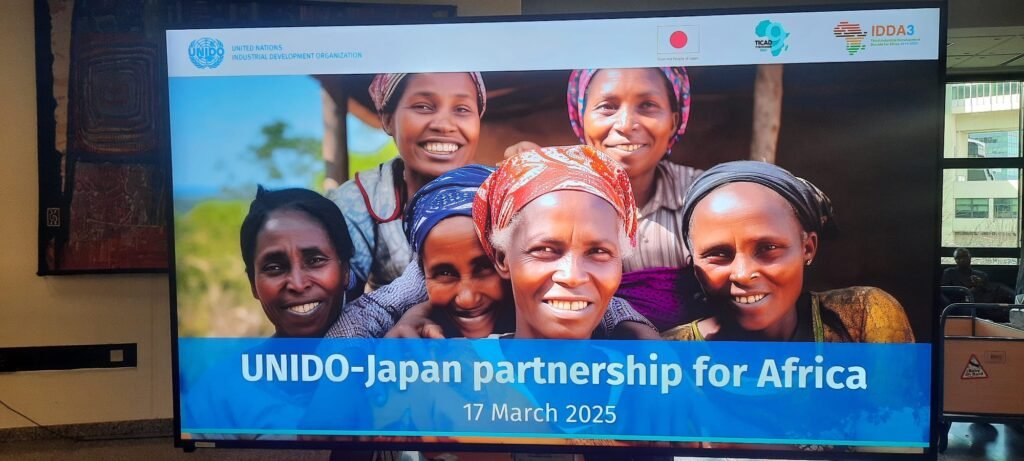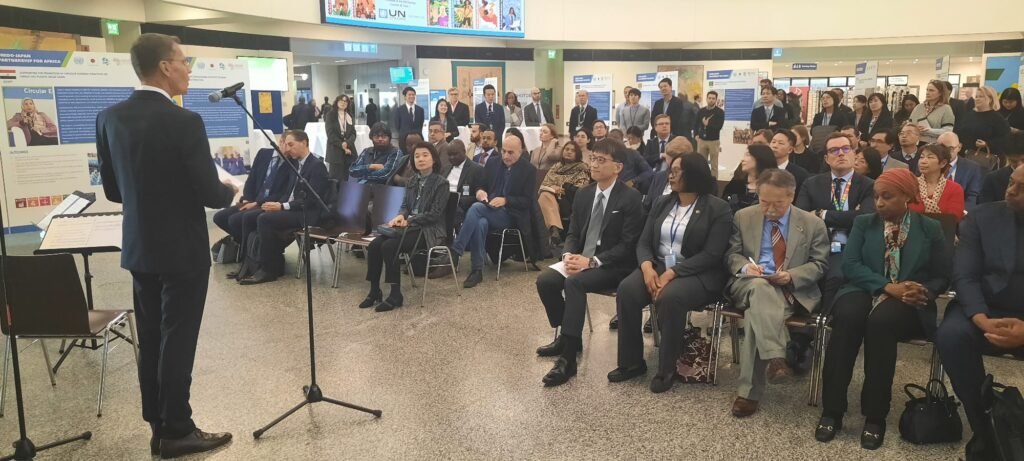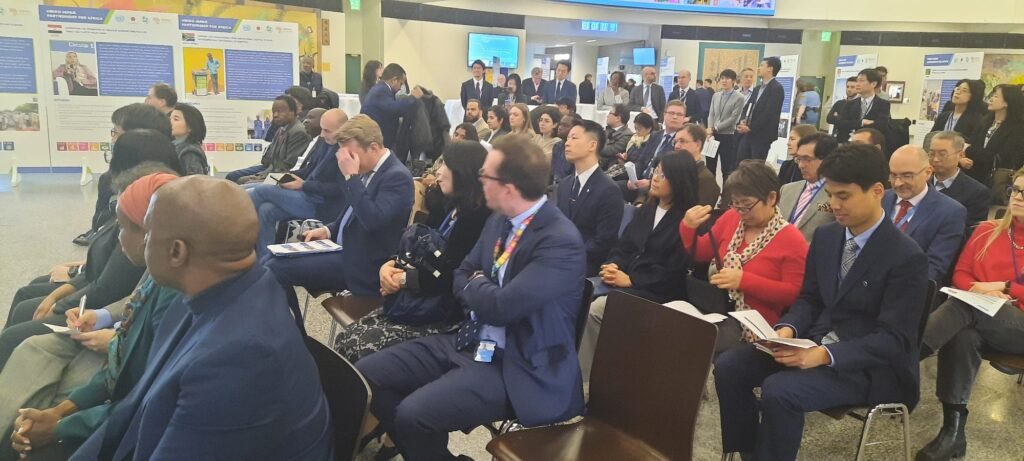Introduction to the UNIDO-Japan Partnership for Africa
The UNIDO-Japan Partnership for Africa represents a vital alliance aimed at bolstering economic development across the African continent. This collaboration underscores the importance of international cooperation in addressing the multifaceted challenges that Africa faces today. The signed agreements serve as a foundation for various initiatives, reflecting a commitment to advancing sustainable industrialization and economic resilience in African nations.
Moreover, the initiative was marked by a significant event held in Tokyo on June 29, 2023. This gathering brought together stakeholders from various sectors, including government representatives, industry experts, and academia, to discuss strategies for enhancing cooperation. Attendees exchanged valuable insights and innovative approaches to tackle critical issues, such as infrastructure development, technological advancement, and poverty alleviation. By engaging a diverse group of participants, the partnership effectively highlighted how collaborative efforts can yield practical solutions for Africa’s development challenges.
This partnership aligns with Japan’s broader commitment to fostering economic opportunities in Africa, as articulated in its various aid and development programs. Japan recognizes that investment in technology and knowledge sharing is vital for empowering African nations to achieve self-sustaining growth. Key areas of focus include enhancing industrial capacity, promoting sustainable practices, and addressing essential infrastructure needs, which are crucial for attracting further investment and ensuring long-term progress.
In conclusion, the UNIDO-Japan Partnership for Africa symbolizes a pivotal step towards a collaborative and unified approach to fostering economic growth on the continent. Through this partnership, both Japan and UNIDO are working assiduously to create opportunities that can transform African economies, while also addressing pressing social issues in the region.
Showcasing Initiatives: Exhibition Highlights
The recent exhibition organized under the auspices of the UNIDO-Japan partnership highlighted a multitude of projects that underscore Japan’s unwavering commitment to sustainable development across Africa. By focusing on critical sectors such as agriculture, energy, and technology, the displayed initiatives reflected tailored approaches to meet the unique developmental needs of various African nations.
In the agriculture sector, projects aimed at enhancing food security were prominently showcased. For example, in Egypt, initiatives promoting the adoption of advanced irrigation techniques not only increase crop yields but also optimize water usage—a vital consideration in arid regions. Meanwhile, in Ghana, innovative farming techniques and training programs have been rolled out to empower local farmers, thereby improving their livelihoods and contributing to economic growth.
Energy sustainability was another major focus area of the exhibition. Kenya presents a notable case with its investment in renewable energy sources, including solar and wind power. These projects not only seek to reduce dependency on fossil fuels but are also essential in providing reliable electricity to rural communities, thus fostering job creation and regional development. In Nigeria, similar efforts are driving a transition towards cleaner energy, ensuring that economic growth does not come at the expense of environmental health.
In addition to agriculture and energy, the technology sector also showcased remarkable initiatives. South Africa’s emphasis on digital innovation is paving the way for a burgeoning tech ecosystem which fosters entrepreneurship and attracts investment. Moreover, Uganda’s initiatives to expand internet accessibility reflect a strong commitment to bridging the digital divide, thereby enhancing opportunities for education and business development.
Each of these projects exemplifies the powerful collaboration between UNIDO and Japan, demonstrating that through shared expertise and strategic partnerships, sustainable development goals can be effectively achieved across diverse contexts in Africa.
Opening Ceremony and Keynotes: Setting the Stage for Collaboration
The opening ceremony of the UNIDO-Japan partnership event represented a significant milestone in the collective efforts to foster industrial growth and sustainability in Africa. Dignitaries from various sectors attended, showcasing a unified commitment to driving forward initiatives essential for the continent’s development. Among the notable attendees were the Director-General of the United Nations Industrial Development Organization (UNIDO) and Japan’s Ambassador to the United Nations. Their presence underscored the importance of international collaboration and the shared ambition to tackle the multifaceted industrial challenges facing Africa today.
During his keynote address, the UNIDO Director-General emphasized the critical need for sustainable industrial practices and the vital role of partnerships in realizing these goals. He articulated a vision for an Africa that thrives through innovation and the collective handling of industrial challenges, highlighting how countries could benefit from cross-border collaborations. The ambassador from Japan similarly stressed the significance of collaboration, drawing parallels between Japan’s own industrial journey and the aspirations of African nations. He noted that by collaborating, both Japan and African countries could learn from each other’s experiences in fostering industrial sustainability.
An engaging cultural performance by the My Heart String Quartet further enriched the ceremony, bridging the gap between different cultures and celebrating the values shared between Japan and Africa. This performance not only added an artistic element to the event but also symbolized the overarching theme of unity. The combined insights from the speakers and the cultural expressions presented during the ceremony laid a strong foundation for future discussions and collaborations aimed at addressing Africa’s industrialization challenges. The ceremony was indeed a pivotal moment that set the stage for tangible outcomes in the partnership’s ongoing journey toward sustainable development.
Conference and Networking: Cultivating Collaborative Opportunities
The recent conference focused on fostering collaboration and knowledge sharing took place as part of the UNIDO-Japan partnership for Africa, emphasizing the critical role of economic development in the region. It included a series of sessions aimed at promoting innovative investment strategies, exploring the principles of the circular economy, and applying lean manufacturing techniques effectively. Each topic was selected to address specific challenges faced by African nations while leveraging global best practices.
Investment strategies were a key focus, as participants examined how foreign investments can be aligned with local needs. The discussions highlighted successful case studies of businesses that have thrived by adapting their investment approaches to local economic contexts. Attendees gained insights into how strategic partnerships can enhance investment outcomes, creating shared value that benefits both investors and local communities.
Another pivotal area of discussion was the circular economy, an emerging model crucial for sustainable development. Experts shared successful implementations in various African countries, showcasing how resource efficiency and waste minimization can lead to economic growth. This approach not only supports environmental sustainability but also opens new avenues for job creation and innovation across sectors.
Lean manufacturing techniques were integrated into discussions to instill efficiency in production processes. Case studies presented during the conference illustrated how African manufacturers could adopt these approaches to optimize operations, reduce costs, and improve overall productivity. The experiences exchanged highlighted practical strategies for implementation, further enriching the collective knowledge of participants.
The significance of networking at the conference cannot be overstated. The reception that followed the opening ceremony provided an informal environment where attendees could engage in meaningful dialogue. These interactions are vital for building collaborations and partnerships that drive economic progress. By cultivating a culture of communication, the conference fostered a spirit of cooperation, paving the way for future initiatives and projects that support African development goals.

